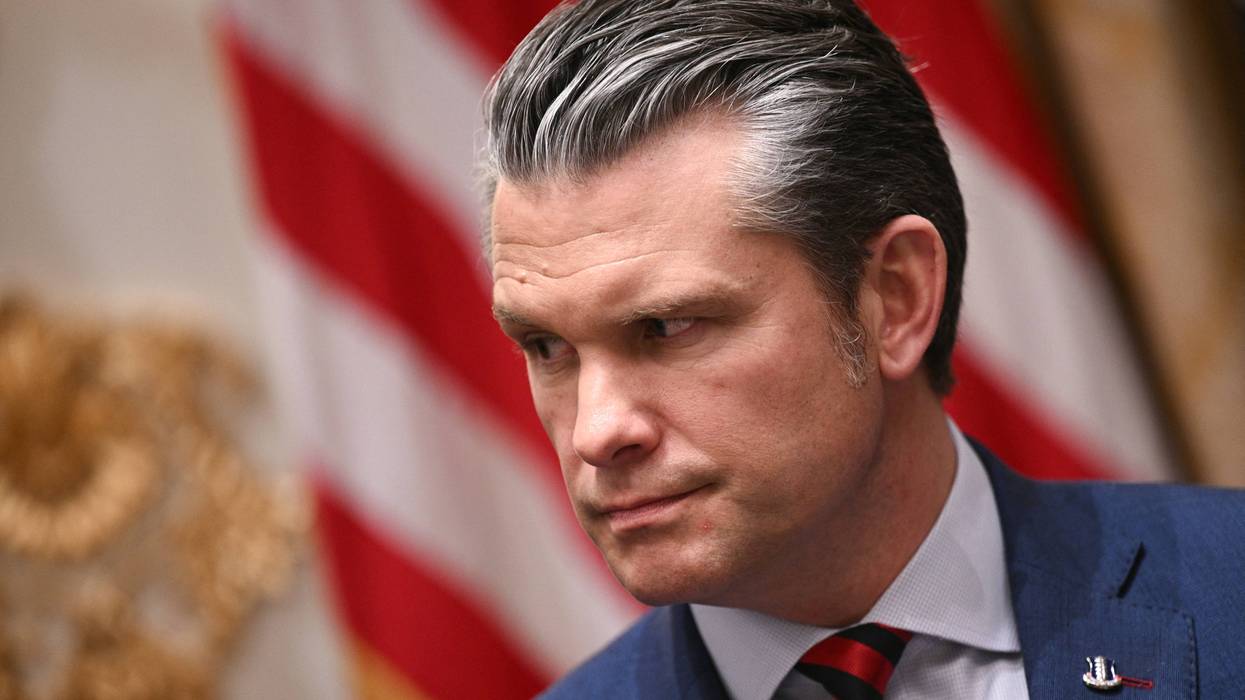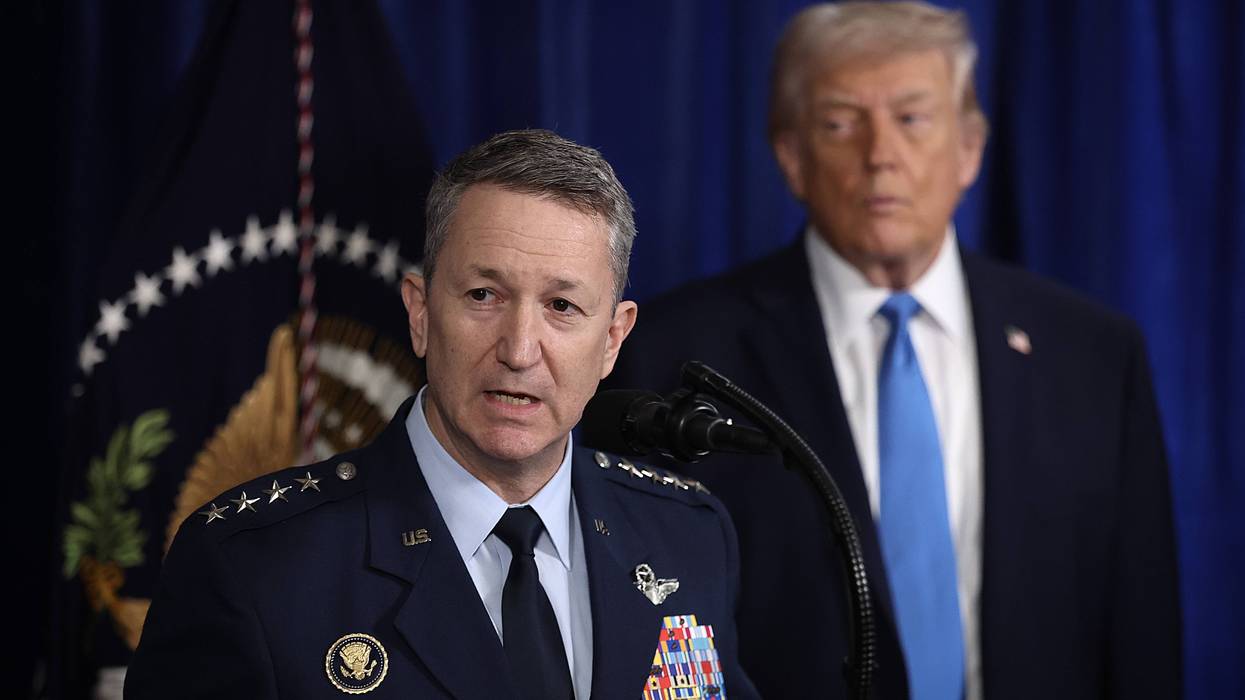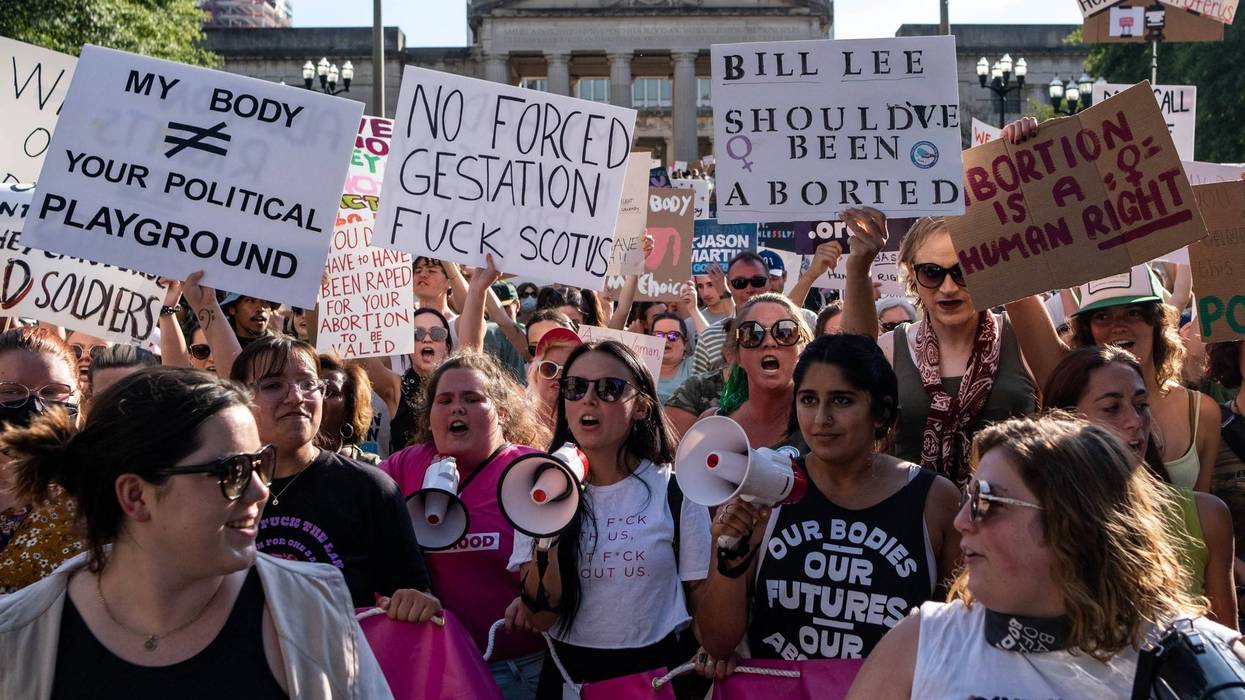February, 24 2010, 02:43pm EDT
For Immediate Release
Contact:
Sam Husseini, (202) 347-0020; or David Zupan, (541) 484-9167
Single-Payer Advocates, Excluded from Summit, Take to Sidewalk
WASHINGTON
STEFFIE WOOLHANDLER, M.D., M.P.H.
MARGARET FLOWERS, M.D.
QUENTIN YOUNG, M.D.
MARK ALMBERG
Young, national coordinator of Physicians for a National Health Program, an organization of 17,000 doctors who support a single-payer, Medicare-for-All approach to reform, said today: "Regrettably, the president's proposal is built on some of the worst aspects of the Senate bill. For example, the president's proposal would ship hundreds of billions of taxpayer dollars to the private health insurance industry in the form of subsidies. And to help finance this, it would impose a new tax on health benefits of workers, especially those in high-cost states.
"Its individual mandate would force millions of middle-income uninsured Americans to buy insurers' skimpy products -- insurance policies full of gaps like ever-rising co-pays, deductibles and premiums. Such policies already leave middle-class American families vulnerable to economic hardship and medical bankruptcy in the event of a serious illness like cancer.
"Even so, at least 23 million people would remain uninsured. We know that being uninsured raises your chance of dying by about 40 percent. That translates into about 23,000 unnecessary deaths each year. As physicians, we find this completely unacceptable.
"In short, this proposal is an insurance company bonanza -- not good, evidence-based health reform. The president would do better by abandoning the insurance and drug companies and instead taking up the single-payer approach. By building on and improving the already popular Medicare program, we could put our patients' interests first. Were President Obama to do so, he would meet with strong public support, including from the medical community."
Although the physicians' group requested an invitation to Thursday's summit at Blair House, no reply from the White House has been forthcoming, Young said. The group also noted: "Similarly, requests from Reps. Dennis Kucinich of Ohio, Anthony Weiner of New York and Peter Welch of Vermont that single-payer advocates be included in the meeting have apparently gone unanswered."
Young knew Obama while he was in Chicago. His partner, Dr. David Scheiner, also a PNHP member, was Obama's personal physician.
Outside the Blair House on Thursday, a grassroots "Sidewalk Summit for Medicare for All" organized by PNHP and other groups will begin at 9 a.m.
Woolhandler is co-founder of Physicians for a National Health Program and a professor of medicine at Harvard Medical School. Flowers is a pediatrician who leads PNHP's Maryland chapter, and Almberg is the group's communications director.
A nationwide consortium, the Institute for Public Accuracy (IPA) represents an unprecedented effort to bring other voices to the mass-media table often dominated by a few major think tanks. IPA works to broaden public discourse in mainstream media, while building communication with alternative media outlets and grassroots activists.
LATEST NEWS
'Do Not Get Numb to This': Trump Admin Kills 3 More People in Caribbean
"The illegality is compounding," said one expert. "Every strike takes us farther from the rule of law."
Feb 24, 2026
The ramp-up of deadly boat bombings in the Caribbean since General Francis L. Donovan took over as head of US Southern Command continued on Monday, with three more people killed in a strike on a vessel that the Department of Defense claimed was operated by "Designated Terrorist Organizations."
Donovan took over as commander of US Southern Command on February 5 following the abrupt retirement of Admiral Alvin Hosley, who had reportedly raised concerns about the Pentagon's campaign of striking boats in the Caribbean Sea and eastern Pacific Ocean—a policy that Trump administration officials have insisted is aimed at stopping drug trafficking from Venezuela.
Venezuela plays virtually no role in the trafficking of fentanyl, the drug involved in most overdoses in the US, and the administration has provided no evidence that the dozens of strikes it's carried out since September have actually been aimed at drug trafficking boats.
Even if the targets were involved in transporting illicit substances to the US, legal experts say the strikes have violated international law.
Following the attack on Monday, the death toll in the Trump administration's maritime operations in the region since September has reached at least 150, and Adam Isacson of the Washington Office on Latin America emphasized that this month, there has been a clear acceleration of boat bombings.
Twenty-five people have been killed in the administration's boat attacks in just 19 days.
"None posed imminent threats," said Isacson. "None faced more than an accusation of guilt for a non-capital crime—'take our word for it.' The illegality is compounding. Every strike takes us farther from the rule of law."
"Do not get numb to this," he added.
Kenneth Roth, former executive director of Human Rights Watch, said Southern Command's killing of three people Monday amounted to "more summary executions."
On Sunday, after another strike that killed three people, the Freedom of the Press Foundation noted that "despite the rising death toll, the government’s legal rationale for these likely illegal attacks remains secret."
"By keeping the legal justifications hidden, the government is sidestepping accountability for what appear to be extrajudicial killings," said Lauren Harper, the group's Daniel Ellsberg chair on government secrecy.
President Donald Trump told Congress in October that the US is in an "armed conflict" with drug cartels. At the time, Gregory Corn, a former senior adviser for law-of-war issues for the US Army, said the president was crossing a "major legal line."
The boat bombing campaign led up to the US government's invasion of Venezuela in January and its abduction of President Nicolás Maduro and his wife, who were brought to the US and charged with drug trafficking. They pleaded not guilty in court last month. Since that military operation, the Trump administration has sought to take control of Venezuela's oil.
Both Democratic and Republican members of Congress have spoken out against the boat bombings and have introduced war powers resolutions to stop the US from continuing the campaign and from attacking Venezuela, but so far, the vast majority of GOP lawmakers have voted down the efforts.
Keep ReadingShow Less
Trump Admits War Would Be Disastrous for Ordinary Iranians as He Weighs Military Assault
"The stakes are clear," said the National Iranian American Council. "There’s a chance to avert war and disastrous outcomes for the people of Iran, but time may be running out."
Feb 24, 2026
President Donald Trump admitted Monday that a US assault on Iran would be disastrous for the Middle East nation's people as he considers options for a military attack, reportedly drawing private warnings from the United States' top general.
In a Truth Social post, Trump pushed back against reports that Gen. Dan Caine, the chairman of the Joint Chiefs of Staff, has voiced concerns about the potentially massive risks of attacking Iran, a country of more than 90 million people. Trump has previously claimed that Caine believed any military conflict with Iran would be "something easily won."
"He has not spoken of not doing Iran, or even the fake limited strikes that I have been reading about, he only knows one thing, how to WIN and, if he is told to do so, he will be leading the pack," Trump wrote of Caine in his Monday post.
The US president—who blew up a landmark diplomatic agreement with Iran during his first term—added that if a new deal with the Iranian government doesn't materialize, "it will be a very bad day for that Country and, very sadly, its people, because they are great and wonderful, and something like this should never have happened to them."
Trump's acknowledgment that a US military assault would likely be devastating for ordinary Iranians runs counter to the narrative pushed by supporters of war, who claim conflict and regime change is necessary to aid Iran's population.
"The stakes are clear," the National Iranian American Council, an advocacy organization that has vocally opposed a US attack on Iran, wrote late Monday. "President Trump himself says that war with Iran will mean a 'very bad day' for Iran and 'very sadly, its people.' There’s a chance to avert war and disastrous outcomes for the people of Iran, but time may be running out."
Lawmakers in the US House of Representatives are expected to vote this week on a resolution aimed at preventing war with Iran without congressional authorization, but the measure stands little chance of reaching Trump's desk.
The president, meanwhile, has shown no indication that he intends to seek congressional authorization for any attack on Iran. One poll conducted earlier this month showed that just 21% of Americans would support the Trump administration "initiating an attack on Iran."
The New York Times reported over the weekend that Trump is considering an "initial targeted US attack" on Iran followed by "a much bigger attack in the coming months" if the nation's government doesn't capitulate to Washington's demands, principally that Iran abandon its nuclear program. Negotiators from the US and Iran are scheduled to meet in Geneva later this week.
"Behind the scenes, a new proposal is being considered by both sides that could create an off-ramp to military conflict: a very limited nuclear enrichment program that Iran could carry out solely for purposes of medical research and treatments," the Times reported. "It is unclear whether either side would agree. But the last-minute proposal comes as two aircraft carrier groups and dozens of fighter jets, bombers,k and refueling aircraft are now massing within striking distance of Iran."
Multiple outlets reported Monday that Caine, the top US general, has offered warnings about the potential risks of attacking Iran. According to the Washington Post, Caine voiced concerns at a recent White House meeting that "any major operation against Iran will face challenges because the US munitions stockpile has been significantly depleted by Washington’s ongoing defense of Israel and support for Ukraine."
The Trump administration's march to war with Iran has also drawn significant outside opposition.
Matt Duss, executive vice president of the Center for International Policy and a former foreign policy adviser to US Sen. Bernie Sanders (I-Vt.), said Monday that "like the June 2025 bombings that failed to destroy Iran’s nuclear program, another US strike would be an illegal act of war."
"As with his false claims that last year’s attack had ‘completely and totally obliterated’ Iran’s nuclear capacity, the president has now dropped the pretense that military intervention would be aimed at protecting Iranian protestors who bravely faced a deadly crackdown to demonstrate against the regime’s many human rights violations," said Duss.
"With Trump sending mixed signals over the timing and scope of possible strikes—and given his record of attacking even when active diplomacy is taking place—Congress must act swiftly to make clear that the president does not have its authorization for the use of the U.S. Armed Forces against Iran," he added.
Keep ReadingShow Less
Republican Lawmakers' Bid to Execute Tennessee Abortion Patients Slammed as 'Christofascism'
"This is about the future of the anti-abortion movement in the Republican Party and the way that they are embracing extremism at a rate that is so fucking alarming," said one critic.
Feb 23, 2026
“If you kill a baby from embryo on up with a pill or a scalpel, we oughta execute you."
That's not social media rage bait by some random zealot, it's the premise of legislation recently introduced by Republican state lawmakers in Tennessee to make abortion a capital offense, as voiced by one of the measure's sponsors. And it's setting off alarm bells in recent days across a nation in which attacks on remaining reproductive rights have been accelerating in the years since the right-wing US Supreme Court overturned its landmark Roe v. Wade ruling nearly four years ago.
An amendment to HB 570/SB 738 was filed by primary sponsors Rep. Jody Barrett (R-69) and Sen. Mark Pody (R-17) and co-sponsored by five of their GOP colleagues, all men, including Rep. Monty Fritts (R-32), who is also running for governor—and who is the source of the quote in this article's lede. Fritts spoke those words at a meeting in Jonesborough, where TN Repro News publisher Rachel Wells last year interviewed a pregnant woman who was allegedly denied prenatal care under Tennessee's Medical Ethics Defense Act because she is unmarried to her partner of 15 years.
If passed, Barrett and Pody's amendment—which was still adding co-sponsors as of Monday—would classify abortion as "homicide of an unborn child," punishable by life imprisonment with or without parole—or even death by lethal injection. The measure contains very narrow exceptions, including for spontaneous miscarriage or when abortion is needed to save a mother's life. The amendment is currently under committee review has not yet been scheduled for a vote.
Tennessee already has some of the strictest abortion laws in the United States, with a near-total ban on the procedure in effect since Republican Gov. Bill Lee signed it in August 2022. Abortion is banned from fertilization, with limited exceptions.
While religious groups including the Southern Baptist Convention and Foundation to Abolish Abortion hailed the proposal as a life-saving measure that serves the will of the Abrahamic deity figure "God," reproductive rights defenders expressed alarm and outrage.
"We are talking about a gubernatorial candidate openly calling for women who end their pregnancies to be charged with a capital crime and spend their life in prison or for the to get the death penalty. That is where we're at right now," Abortion, Every Day publisher Jessica Valenti said in a video posted on social media.
"This is not just about this one guy," she continued. "This is about the future of the anti-abortion movement in the Republican Party and the way that they are embracing extremism at a rate that is so fucking alarming."
Meet Rep. Monty Fritts— a Tennessee lawmaker running for governor. If you’re one of the millions of American women who’s had an abortion, he thinks that you should be given the death penalty
[image or embed]
— Jessica Valenti (@jessicavalenti.bsky.social) February 18, 2026 at 7:57 PM
"Saying that women should be punished for having abortions was once... an unthinkable thing to say within the anti-abortion movement," Valenti added. "Now they're openly embracing it. Over a dozen states over the last year have introduced or advanced equal protection legislation... that would punish abortion patients as murders, which in some states can mean the death penalty, it could mean life in prison."
"This is not some fringe element," she stressed. "This is becoming the mainstream of the movement. Right now in Texas... the Republican Party platform calls for equal protection. It calls for the execution of women or life in prison for women who have abortions. This is not fringe."
In South Carolina, where a bill to execute people who have abortions garnered more than 20 GOP votes on its way to defeat but performing the procedure is a felony, the Sumter County Sheriff's Office last week launched an investigation into a fetus that was found at a water treatment plant. Investigators will test tissue samples from the fetus "to determine the race and locate the mother."
Numerous deaths have been attributed to abortion bans in states including Texas and Georgia.
Back in Tennessee, Fritts—who is polling at around 5-7% in the GOP gubernatorial primary, depending on the survey—has been busy defending his proposal to kill people who have abortions.
“Murder is murder. I know that’s hard for people to hear, and I don’t mean to be hard with it, I promise,” he told the Tennessee Holler, comparing abortion pills to cyanide capsules.
Fritts' campaign slogan is "liberty & less government."
Responding to Fritts' co-sponsorship of the death penalty amendment, Jon Tate's Daily Practice publisher Jon Tate wrote, "Disgusting."
"While I was busy and not paying attention, my state was apparently becoming ground zero for white-supremacist Christofascism," he added. "It breaks my brain and my heart."
Keep ReadingShow Less
Most Popular


